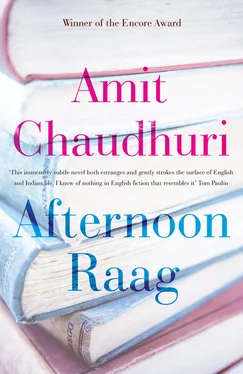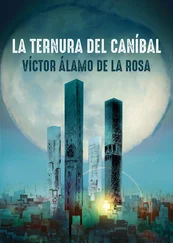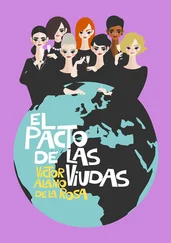In August, in the last quarter of the monsoons, there would be a gathering, in memory of my guru’s father’s spiritual teacher, in a small temple in old Bombay, a community extravaganza that began early in the evening and continued to the dawn of the next day, as, one by one, musicians came and performed their piece and received my guru’s family’s disorganized hospitality and then left, while that family, with its grandfathers, daughters-in-law, and children, stayed wide awake through the night. My mother and I were invited to sing as well, and we took this performance seriously. So we set out in our Ambassador, with the tanpura resting on the front seat, and went down the drizzly roads of North Bombay, past eating-houses, local railway stations, old cinema halls, in search of the Ganesh temple at Matunga, which was our landmark. There, upon asking directions, the car turned into a lane, a shaded avenue of middle-class Marathi civility, where, in the houses, boys did their homework and young girls, their hair tied in a plait, studied harder than the boys and learned natya sangeet from their mothers, and, in the other room, the father-in-law, a widower, waited for dinner, while his son stood on the balcony in a vest and pyjamas. Through this lane we passed till noises were heard and lights were seen. All the family was there, in the courtyard adjoining the small temple, and already there was a singer performing inside, his voice heard and serenely ignored as it came through a loudspeaker. The women my guru’s mother, his wife, Mohan’s and Sohanlal’s wives — sat together in a small room with no door, to enter which one had to take off one’s sandals. Distant cousins, ne’er do well uncles in dhotis and turbans, irresponsible brothers-in-law who were fathers to several children, hung around in semi-joyous, semi-disgraced abeyance in the festive crowd, and were always available when an extra cymbal player or tanpura player was needed. Family snobberies, hierarchies, bonds, made themselves felt from the powerful, segregated clan of elderly women to the excited children in shiny clothes. This was my guru’s world, a little Rajasthani village in Bombay.
This community would rematerialize in much the same way at funerals and weddings, and at the airport on the two occasions when my guru went to England. Then the traveller abroad was blessed by the elders, and nearly everyone was given a chance to hug and garland him, from close to seldom-seen relatives who reappeared at such moments to display family love and solidarity. This solidarity, which was a form of dependency, for the poorer relatives used this as an opportunity to ask favours of those who, like my guru, were doing better for themselves, became evident again, in all its formal comedy and transient but sincere show of love, during my guru’s illness. I was then in Oxford; my parents were preparing to sell that flat in the suburbs and leave Bombay for ever. My mother described it to me later; the clan, enlarged now by concerned relatives who had come down from the villages for this special purpose, rallied around my guru and made every effort to hasten his death. Some of them came and stayed in his tiny flat; for them, it was a pilgrimage to see Bombay. A few years ago, my guru and his brother had sold their ‘chawl’ in King’s Circle, and, with government loans, bought two flats, one for each brother, in Versova and Andheri. This, for them, had been like a liberation from an old and stifling way of life. Once, when my mother went to visit my guru in Versova during his illness — a recently developed area, with new buildings and roads alternating with patches of marshy land — she found the creation of a great lunch in progress, the women chopping spinach and boiling milk in the kitchen, the relatives moving about in the tiny space of the ‘hall’, careful not to step on the small shoals of children, the aroma of food spreading through the house, an anecdote being developed and an observation elaborated, while my guru lay on his side on the bed that was next to the front door, his head on the pillow, watching all this. In Bombay, where property is sold at thousands of rupees per square foot, each inch of space is magnified; a hall is called a hall, a bedroom a bedroom, though none of these rooms may be larger in size than a kitchen. The laughing Rajasthani women wore bright chiffon saris, draped them over their heads, and kept a small part of their faces symbolically covered with the last remnant of a veil. In all that crowded commotion, medicines were given at the wrong time, or forgotten. The fabric of an ancient hospitality, irrelevant courtesies, meaningless gestures of goodwill, all-important in the creation of the decorum of that village-life — and they owned little else but that decorum — this was eternal, nonindividual, it would go on; and, already, my guru was an outsider to it, he was leaving it behind. After he died, this life, as expected, continued cheerfully, divided from death only by a thin, transparent border; my guru’s wife saw him in her dreams; sometimes he reassured her that he was happy ‘over there’; at other times, he gave her sound financial advice: ‘Eat chutney and chappati but don’t sell the flat.’ Influential government servants whose daughters or wives had been taught by my guru came forward to help his widow and children; helped her to set up a small, government retail shop that sold milk, peas, and meat. Then my guru stopped appearing in dreams.
The old Calcutta airport, a dignified colonial bungalow with potted plants, is gone, but the ‘new’ domestic airport, now proxying as the international airport, stands and welcomes arriving passengers. Most of the travellers, coming or leaving, belong to Calcutta itself, Bengalis or Marwaris with children running from the bookshop at one end to the coffee-stall at the other. Outside, in the light, a crowd of boys and young men wait perpetually to greet the passengers as they emerge, to take their suitcases, to offer them taxis. You shoo them away; you try to ignore them; and then they have already forgotten you, they have found someone else, or are quarrelling playfully with each other. But one or two of the younger ones will reappear at the car park and run with the car and see you off for the gift of a coin.
As a child, I used to come here with my parents for my holidays; but this time, returning from England, my parents were waiting for me outside the arrival area, my father and mother standing in the light, while passengers, pursued by those exuberant, sparrow-like local boys, passed before them, negotiating trolleys. Was it my imagination, or had some of Calcutta’s black vapour darkened their complexions a shade? They looked as if they had been exposed to the sun, and seemed smaller as they stood there. But when I asked them, they said it might be because they had woken early in the morning; and here they were to receive me.
The drive homeward goes past a village scene, with huts, plantains, lakes, and malnourished but energetic children. Then, without hiatus, the city begins with a great drum-roll of traffic and one is in the midst of a marketplace of houses, tailors’ and butchers’ shops, billboards, and tramlines, bargaining for movement, haggling to go forward. Nothing has changed for the last twenty years. The Bengalis are like Irish families, except that they are small in height and the men have no access to drink, but the city is a mixture of officiousness and circumlocution that makes one despair. The air is awash with Marx and Trotsky; the airport, to which no international flight but Aeroflot and the Bangladesh Biman has been coming for years, is no gateway to fresh influences from abroad, but an interesting, if puzzling, building: and in Calcutta, nothing has happened after Marxism and modernism. In tea-shops and on street corners, Bengali men, as ever, indulge in ‘adda’, a word that means both a pointless, pleasurable exchange of opinions and information, and the place or rendezvous in which it is conducted; if it were possible to say, for instance, of a certain kind of languorous conversation in England, ‘I’m having a pub,’ its quality might be approximately communicated in English.
Читать дальше












